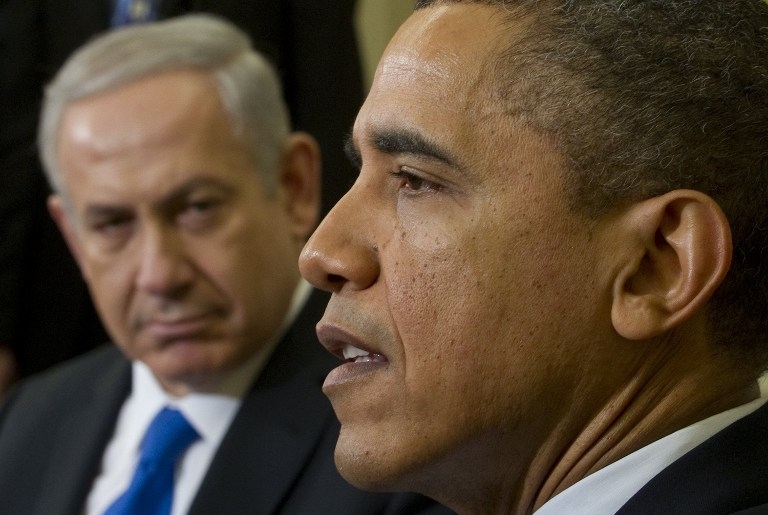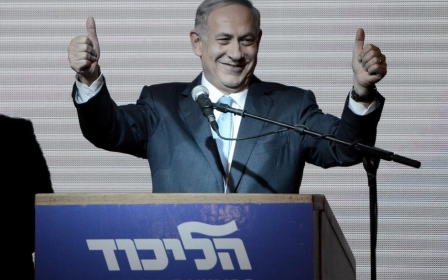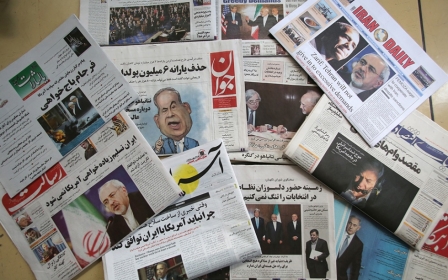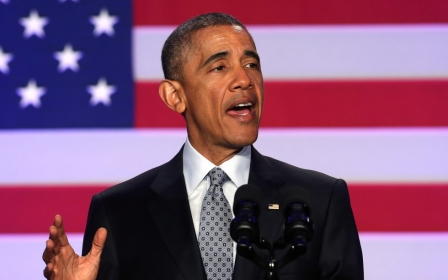The Obama-Netanyahu rift: Strategic changes in the making?

Gone are the days where the interests of the US and Israel strategically converged. Today, the strategic interests of the two countries are increasingly diverging.
Mounting friction between President Barack Obama and Prime Minister Benjamin Netanyahu became evident during Obama’s 2012 re-election campaign. In his 60 Minutes interview in September that year, when asked if Netanyahu was pressuring him to make up his mind to use military force in Iran, Obama replied: “When it comes to our national security decisions, any pressure that I feel is simply to do what’s right for the American people. And I am going to block out any noise that’s out there.”
Obama's remarks reflected new, profound realities in the Middle East against which the US - at least as viewed by a growing faction in the American establishment, mainly Democrats – would no longer unconditionally support Israel.
Inflamed relations between Obama and Netanyahu worsened after the moderate Hassan Rouhani took office in Iran in 2013. Netanyahu's forceful attempts to convince the Obama administration that Rouhani was nothing but a “wolf in sheep’s clothing” fell on deaf ears: the White House, in conjunction with other members of the P5+1, signed a historic interim nuclear agreement with Iran.
In the latest episode of strained US-Israeli relations, Netanyahu defied Obama’s efforts in seeking a diplomatic solution to Iran’s nuclear crisis by delivering a speech before a joint session of the US Congress on 3 March.
Some interpret the rift between the two leaders as personal incompatibility. Perhaps. But behind this lies the fact that Obama represents a faction in the US establishment that no longer views Israel as a major strategic asset; rather, it increasingly sees Israel as a burden on US foreign policy.
For the first 20 years of Israel's existence, the US was not as supportive of Israel as it is now. In the late 1950s and early 1960s, French engineers assisted Israelis in building a nuclear reactor and bombs and France was Israel’s major arms supplier. It was only after the Six-Day War in June 1967 that Charles de Gaulle's government imposed an arms embargo on the region, including Israel.
In the early 1960s, President Kennedy asked the government of Israel to let American physicists inspect Israel’s Dimona nuclear facility. During inspection, Floyd Culler, the leading American inspector, observed newly plastered and painted walls in one of the buildings and noted them in his reports. Israelis had built false walls to hide a reprocessing plant six levels underground.
More evidence of a lukewarm relationship between the US and Israel came in 1956. After Egyptian president Gamal Abdel Nasser nationalised the Suez Canal, Israeli troops pushed into Egypt joined by French and British forces. The US threatened the three nations with economic sanctions if their attack persisted and they eventually bowed to US pressure.
After the Six-Day War of 1967, France was supplanted by the US as Israel’s chief foreign ally, a relationship that peaked during the next Arab-Israeli war in 1973. At the time, Americans viewed Israel as a reliable partner in confronting Soviet expansion, evidenced by the Soviet Union's close relations with Egypt and Syria.
The fall of the communist bloc produced the first cracks in this strategic alignment. Nevertheless, a new powerful factor had emerged to influence US foreign: the Israel lobby.
As renowned international relations experts John Mearsheimer and Stephen Walt argue, neither strategic interests nor moral imperatives can explain the US' “unconditional support” for Israel anymore. In their book, The Israel Lobby and US Foreign Policy, they conclude that US Middle East policies are influenced by the “unmatched power of the Israel lobby” actively working “to shape US foreign policy in a pro-Israel direction”.
In January, in a behind closed doors meeting with the Senate Democrats, President Obama reflected the same assessment. He said that “he understood the pressures that senators face from donors and others, but he urged the lawmakers to take the long view rather than make a move for short-term political gain” according to a New York Times report.
Obama is not alone in concluding that US and Israeli strategic interests have diverged. A well-established faction in US foreign policy circles feel the same.
Such a conclusion has been made in light of Israel’s recent actions, including the use of excessive violence against Palestinians, condemned by Amnesty International as war crimes, that add to anti-Americanism in the region with no evident reward in exchange.
A second problem is Iran.
Israel’s strategic goal is to topple Iran’s Islamic regime, which views it as an existential threat. To achieve that goal, Israel - under Netanyahu to say the least - seeks a way to drag the Americans into war with Iran.
Netanyahu, as well as the Obama administration, surely know that only two possibilities regarding Iran exist: either a nuclear deal is struck, or a failure in negotiations leads to a familiar chain of events. The first in this chain is tougher US sanctions against Iran, and then the continuation of the futile pattern of previous years, whereby Tehran would expand its nuclear programme and, in response, the US would issue new sanctions. Since that pattern cannot continue into perpetuity, logic and historical experiences dictate that it will end in an inadvertent or planned war.
This idea may pair with the security interests of Israel. But for the US, as fully understood by the administration, after the experiences in Iraq and Afghanistan, a war with Iran - which could very well gain regional dimensions - is not acceptable.
It is also against US interests because without Shia Iran’s participation - the latter, highly motivated to fight the rising Sunni jihadists, the sworn enemies of Shiites - a successful war against the Islamic State and other such groups would be extremely difficult to win.
It remains to be seen whether Netanyahu and his like-minded countrymen come to grips with the reality of the new era where the interests of Israel and its closest ally have begun to diverge.
- Shahir ShahidSaless is a political analyst and freelance journalist writing primarily about Iranian domestic and foreign affairs. He is also the co-author of “Iran and the United States: An Insider’s View on the Failed Past and the Road to Peace,” published in May 2014.
The views expressed in this article belong to the author and do not necessarily reflect the editorial policy of Middle East Eye.
Photo: US President Barack Obama and Israeli Prime Minister Benjamin Netanyahu speak during meetings in the Oval Office of the White House in Washington, DC in 2012 (AFP)
New MEE newsletter: Jerusalem Dispatch
Sign up to get the latest insights and analysis on Israel-Palestine, alongside Turkey Unpacked and other MEE newsletters
Middle East Eye delivers independent and unrivalled coverage and analysis of the Middle East, North Africa and beyond. To learn more about republishing this content and the associated fees, please fill out this form. More about MEE can be found here.





